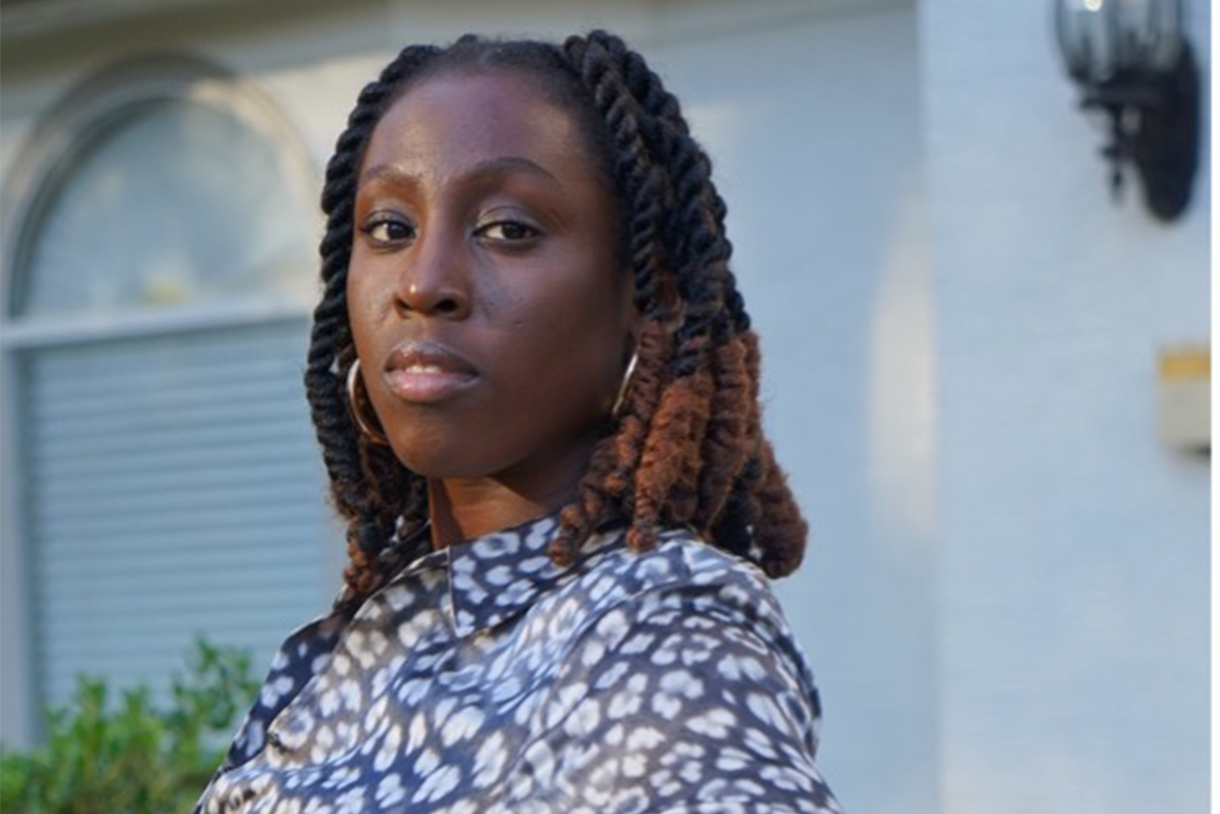Dance and Cultural Studies Alum Brianna Heath '17 on the Importance of Listening to Your Genuine Self
 Photo courtesy of LJA Films.
Photo courtesy of LJA Films.“I began dancing in the church,” Brianna Heath remembers. “The Black, Pentecostal church was where I was first introduced to improvisation, community care, and love as practice. I began as a liturgical dancer and was subsequently brought up by other Atlanta-based dancers and community organizers, many of whom were Black women. They were very intentional about using their art to tell stories for their own sakes (and disrupting the gaze of others). Before I left ATL for Chicago, they armed me with the tools to do the same.” That rich beginning contributed to Heath’s longtime passion for collaboration, community-based performance, and storytelling.
When it was time to choose an institution for college, Heath had the opportunity to experience something new: “One of my good sister friends, she’s about a year older than me, she decided she was going to Columbia. And so that’s how I found out about it and decided to look into it,” Heath says. Plus, one of her mentors made the same recommendation. “One of my ATL mentors, choreographer, T. Lang, encouraged me to pursue dance at Columbia…she knew some of the professors in the dance department and encouraged me to go. She said that Chicago could be the place where I could come into my own artistically.” After learning a little more about the college’s offerings, Heath felt, as she says like “I just needed to go.” For Heath, that internal certainty was born of, as she phrases it in honor of theologian Howard Thurman, listening to the sound of her genuine being.
That sound has never led Heath astray. At Columbia, Heath encountered faculty like former Associate Professor of Dance Raquel Monroe and Dance faculty member Meghann Wilkinson, both of whom encouraged Heath to continue to chart her path when the going got difficult. Heath recalls Monroe, especially, “laying the foundation for what it could look like to be a Black woman/artist/scholar who was always pushing against the boundaries of the institution. She really gave me space just to do and to be, which, looking back on it, is a gift.”
The call to create safe spaces where Black women artists could bring their whole selves led Heath first to Columbia’s Black Arts Movement class with former Columbia professor Denege Akpem and, through information she learned in that class, ultimately to the South Side Community Arts Center (SSCAC), an experience that proved to be foundational for Heath. “It felt like being enveloped into history,” Heath says, “being embraced by this city that is so filled to the brim with Black memories.” Those experiences, paired with mentorship by Associate Professor Robert Hanserd, inspired Heath and her roommate, Alivia Blade ’17, to start organizing small gatherings for friends and classmates at the SSCAC and then to starting the inaugural Black Arts Festival, which has “transformed into an annual gathering that synthesizes past and present to inform visions of an empowered future.”
One day after the first Black Arts Festival, Heath accepted an invitation to danceGathering in Lagos, Nigeria, where she met her creative and life partner, Joshua Akubo Gabriel. There, the seeds of a new venture, theD'até Culture Foundation (DCF), was born. DCF, an arts and culture organization based in Kaduna, Nigeria, seeks to affect systemic change in African and African diasporic communities through the arts. “Artist-centered and diaspora-focused, DCF supports young and emerging artists through yearly programs including an artist residency program, performance festivals, [and] community dialogues in Kaduna and Abuja, Nigeria. DCF also offers artistic consulting to emerging artists and organizers,” Heath says. “We're thinking of this first edition as a ‘transatlantic creative compound,’ a ground zero for artistic experimentation and innovation. We're piloting a new research-residency called the 10X10 Global Artist Residency. The residency is an opportunity for 20 Nigerian and African diasporic artists to gather and be inside of a process together, to make something entirely new, to have necessary and overdue dialogues.”
Today, Heath’s work with the Foundation continues. “Josh and I are working together and trying to uplift the young artists and the young culture makers who are the vanguards,” Heath says. “Young, Black artists and culture makers are constantly revolutionizing artistic and social landscapes across the world. Josh and I are working together to uplift their voices, provide the resources that they need to speak to their context, and connect them with comrades throughout the Diaspora.”
This year’s festival will occur in April 2023. After that, Heath intends to continue to work in community building, activism, and dance. Always, of course, following the sound of her own genuine.